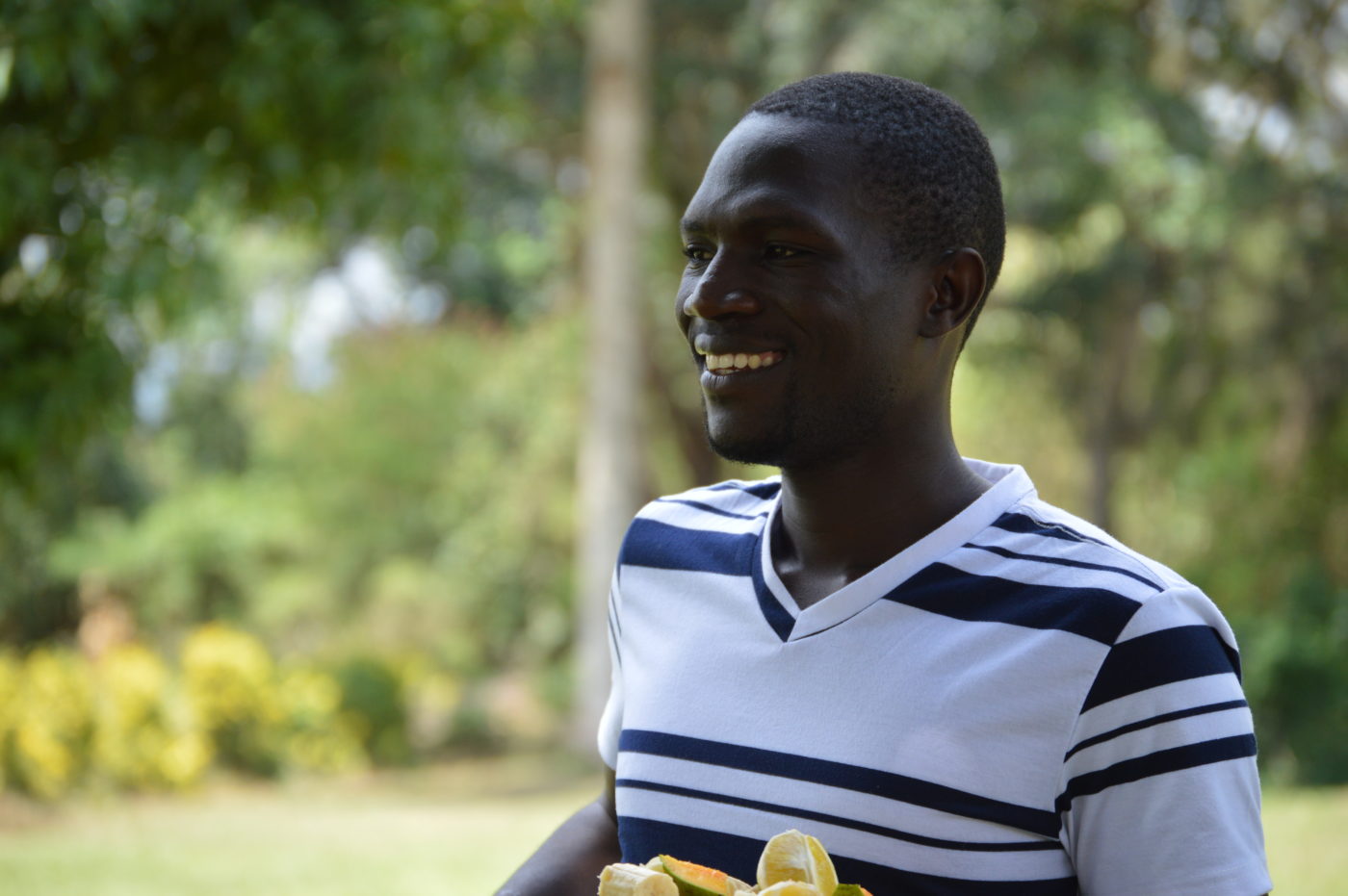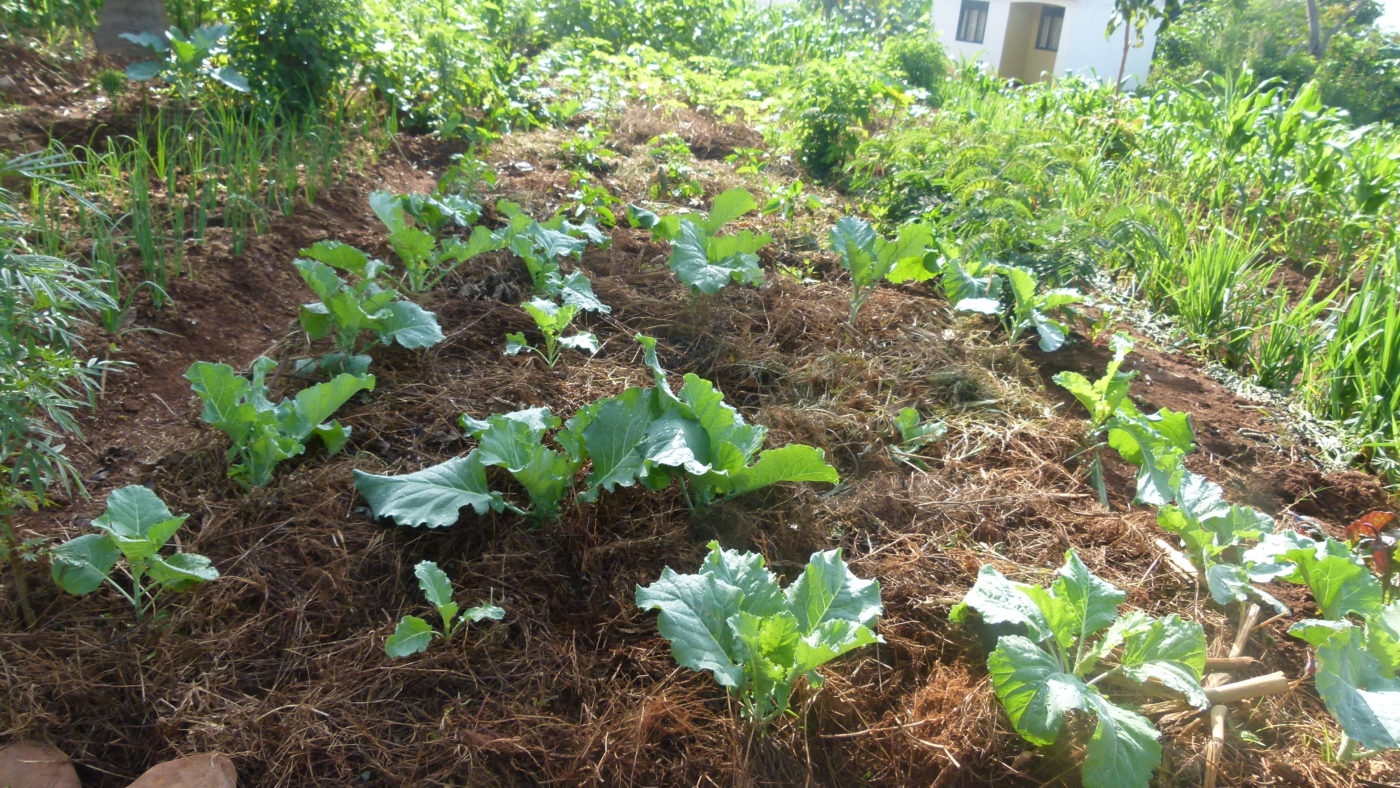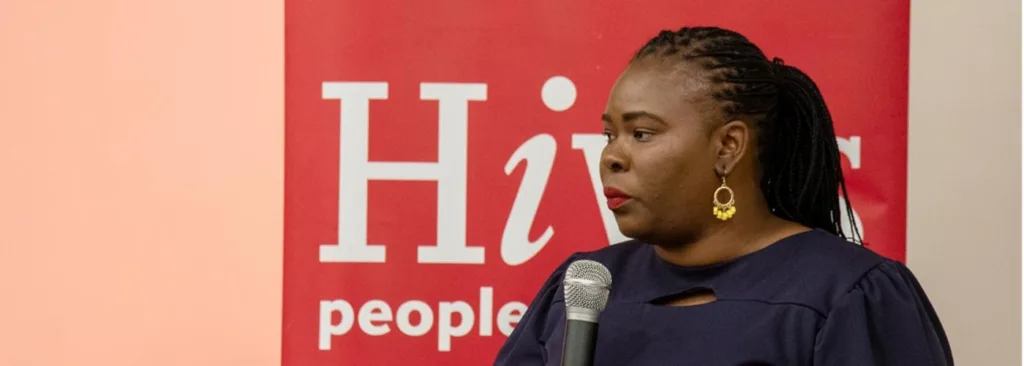John Kiwagalo’s Slow Food story
John Kiwagalo is a staunch supporter of change in the field of food production and consumption—in essence, how people grow and eat food. As Project Coordinator for Slow Food Youth Network (SFYN) Uganda, a Hivos partner, John works tirelessly to make Ugandan youth, farmers and citizens familiar with the philosophy that all food should be good, clean and fair for all.
John’s passion was ignited when he visited local farmers and families in his own district. He noticed that although diverse, indigenous healthy foods were being grown, most of the produce was being sold for cash instead of directly consumed. People were using the money made from selling these indigenous food products to purchase semi-processed foods such as maize and wheat – not the makings of a very diverse, nutritious diet. As a result, their nutrition and overall health were suffering.
John was very concerned about what he witnessed and felt the cycle needed to be broken. He thought: ‘if people could be taught and motivated to grow diverse indigenous foods in their home gardens, and also learn about their nutritional value, perhaps they would be inspired to change their food habits.’ Since a more diverse diet, one which includes indigenous vegetables, for instance, is not only healthier, but also more sustainable from a production standpoint.
John knew that in order to convince people to change the way they produce and consume food (i.e. their food habits), district and community level leaders, including religious leaders, would need to be involved. They are all highly respected in the community and people are more willing to listen to them. So, John approached the local leaders first. Through SFYN-Uganda, he also organized various workshops to raise the leaders’ awareness of the effects of consuming unhealthy food, the general availability of diverse, nutritious food, and to tell them about Hivos’ Sustainable Diets for All program in Uganda. As a result, the leaders agreed to raise the issue of sustainable diets within the community by talking with citizens about their food production and consumption habits.

Spreading the word about indigenous foods
John and his SFYN-Uganda colleagues then proceeded to organize trainings for those who didn’t have any knowledge about growing their own indigenous foods, including vegetables. He also recruited farmers to act as food ambassadors. John and his team used various media channels to communicate their messages, including videos, ads in local newspapers, community radio stations and social media platforms, inviting leaders and farmers to give their testimonies. Moreover, the community feedback forum organized every month, offered citizens the opportunity to listen to speakers talk about the harmful effects of fast food consumption and the importance of including indigenous, diverse and healthy foods in their diets.
Farmers were specifically invited to share thoughts from their communities at Food Parliament meetings. The farmers took the knowledge they acquired from the trainings and dialogues back to their villages to be discussed in village and local council meetings. Soon, many families that had been growing flowers in their gardens were switching to growing vegetables instead. Walking down the streets of Buikwe and Ngogwe districts today, you can clearly see the evidence of the outreach activities – beautiful, diverse gardens full of healthy foods.

To-date, 12 farmer groups have established 38 family gardens and 12 community gardens. Women have been the easiest to convince and engage, especially in Buikwe district. This is important as they are usually the ones who decide what their families eat and what gets planted in a family or community garden. Men and youth have been more difficult to engage. So, John and his colleagues aim to talk directly with men about food-related events that are happening in the community, with the hope that they will talk with other men they hang out with.
John’s dream
John has also engaged with young people by convincing youth councilors and leaders at different levels to reach out to fellow youth about food issues. Ultimately, he is trying to bring families together around the critical topic of what they eat. His dream is to see as many people as possible taking action to eat healthy and to feel empowered to raise food production and consumption issues directly with their local leaders. In order to realize this, John and his colleagues are working with local authorities in Buikwe district to ensure that local by-laws support the planting and consumption of traditional foods, in order to promote nutrition security for Ugandan citizens.




